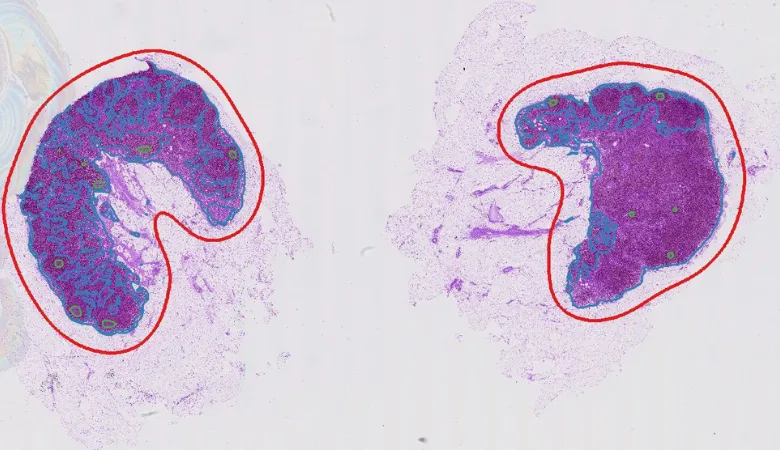
AI model predicts if breast cancer will spread based on lymph node changes
Artificial intelligence (AI) can predict if an aggressive type of breast cancer will spread based on changes in a patient’s lymph nodes.
The research, published today in The Journal of Pathology, by Breast Cancer Now funded scientists at King’s, shows that by analysing the immune responses in the lymph nodes of women with triple negative breast cancer, it’s possible to tell how likely the disease is to spread to other parts of the body.
Read the full story